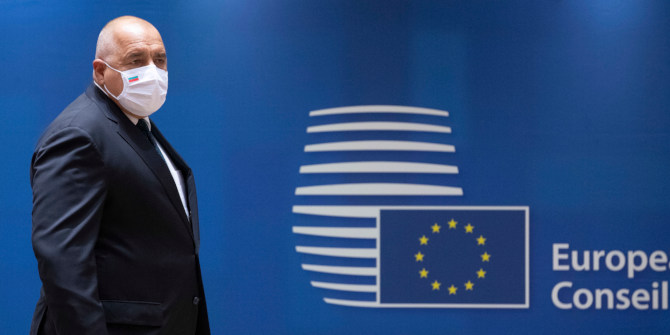Recep Tayyip Erdoğan won reelection in the second round of Turkey’s presidential election on 28 May. Tahir Abbas reacts to the result and reflects on what it means for Turkey’s future.
The 2023 Turkish presidential election, which resulted in the reelection of President Recep Tayyip Erdoğan, will have significant implications for the country’s future. Erdoğan’s victory has sparked concerns about political stability and democracy. Critics, such as opposition adviser Mehmet Karli, consider it a “pyrrhic victory”, potentially worsening political tensions.
Kemal Kılıçdaroğlu, the opposition leader, has labelled the election the “most unfair” in Turkey’s history, accusing the Erdoğan administration of fostering a climate of fear and intimidation. Instances of voter fraud, irregularities in past elections, and violence at polling stations during the 2023 election have raised further worries about election security. The government’s attempts to delegitimise opposing parties by accusing them of collaborating with terrorist groups added to the overall tension and insecurity surrounding the vote.
Despite a decrease in support compared to the 2018 election, Erdoğan’s Justice and Development Party retained a comfortable parliamentary majority in the accompanying 2023 parliamentary election on 14 May. His victory will solidify his rule for a third decade. Erdoğan has been congratulated on his reeelection by several international leaders, including those of Russia, Qatar, Libya, Algeria, Hungary, Iran, the Palestinian Authority and the United States. These countries expect Erdoğan to continue to pursue an independent foreign policy and to attempt to strengthen Turkish state sovereignty.
However, given Turkey’s regional security role and influence in Central Asia, the Middle East and Africa, Erdoğan’s foreign policy decisions will have far-reaching implications for global democracy and security. Despite Erdoğan’s call for unity and a focus on national goals in the aftermath of his victory, the future challenges facing Turkey under his continued leadership remain uncertain. The opposition has cautioned of “hard days ahead” for the country, while analysts suggest that Erdoğan’s reelection may exacerbate the nation’s democratic decline and economic problems.
Turkey’s fragile economy
The Turkish economy was already in disarray prior to the election due to Erdoğan’s erratic economic policies and mismanagement, as well as the impact of the Covid-19 pandemic. This resulted in rising inflation, a weakened currency and economic instability. The opposition had plans to reverse Erdoğan’s presidential system and implement rational economic policies, among other changes. However, with Erdoğan’s reelection, it is expected that these issues may persist or worsen.
The Turkish lira’s decline following Erdoğan’s reelection can be attributed to the current economic instability, perceptions of autocracy, the controversial nature of the election and international tensions. These factors have created uncertainty and negatively affected market confidence in Turkey’s political and economic future. Financial markets tend to react unfavourably to uncertainty and the contentious nature of the election likely exacerbated this response.
The country has also experienced a brain drain, with highly educated individuals leaving, which could hinder Turkey’s development and economic potential. Additionally, Erdoğan’s administration faces the daunting task of managing the recovery from a devastating earthquake that struck in February. The earthquake claimed over 50,000 lives in Turkey and neighbouring Syria, making the recovery efforts a key priority for the government.
The Turkish lira continues to be undermined by several ongoing issues. First, there is the wider economic instability and inflation, which Erdoğan has pledged to prioritise. Second, there is Erdoğan’s autocratic governance style, which, along with the centralisation of power and his use of intimidation tactics, has weakened democratic institutions and checks and balances. This political climate does not inspire investor confidence and is negatively affecting the economy and currency.
Third, allegations of unfairness, voter fraud and irregularities during the election have raised concerns about the political stability of the country. This lack of confidence could have an adverse effect on the value of the lira. Finally, tensions with international actors and Turkey’s foreign policy decisions also play a role as there is a complex international dynamic that also influences the Turkish economy.
Troubled foreign and European relations
Erdoğan’s tenure has been transformative for Turkish politics, reshaping the secular state established a century ago to align with his Islamic vision. However, critics argue that Erdoğan’s rule has led to a concentration of power bordering on autocracy and a crackdown on dissent.
These political dynamics hold significant implications for Turkish foreign policy, especially concerning the EU. Erdoğan’s increasingly assertive and militarised foreign policy often puts him at odds with Europe and the United States. Turkey’s claims of a large exclusive economic zone in the eastern Mediterranean, along with the country’s relationship with Russia, have created tensions with EU and NATO partners.
Despite these sources of friction, Turkey and the EU remain key trading partners and cooperate on various issues such as climate policy, health, migration and supporting Ukraine in the war with Russia. However, strained relations have hindered this cooperation. For instance, migration cooperation at the EU-Turkey border has been limited since 2020, with Ankara refusing to accept returns of migrants from Greece. Additionally, the EU-Turkey customs union has deteriorated due to Turkey’s implementation of tariff and non-tariff barriers on EU products.
The future of EU-Turkey relations heavily depends on the political trajectory of Turkey under Erdoğan. As his rule continues, further turbulence in EU-Turkey relations is likely, especially if Europe perceives any unfairness in the election process. While cooperation on mutual interests is necessary, it will likely be transactional and Turkey could distance itself further from the West. Conversely, an opposition victory could have brought significant changes in Turkey’s domestic and foreign policies, potentially revitalising the EU-Turkey partnership if both sides were willing to bridge their differences.
The strained state of EU-Turkey relations stems from bilateral disagreements between Turkey and several member states, concerns about democratic freedoms in Turkey and divergences on broader foreign policy issues. The EU’s worries regarding human rights and the rule of law in Turkey, particularly following the attempted coup in 2016 and the constitutional referendum in 2017 that enhanced executive control, have impeded cooperation and stalled Ankara’s accession negotiations. It remains to be seen how these dynamics will develop over the coming years under Erdoğan’s continued leadership.
Note: This article gives the views of the author, not the position of EUROPP – European Politics and Policy or the London School of Economics. Featured image credit: Dima Rogachevskiy on Unsplash




